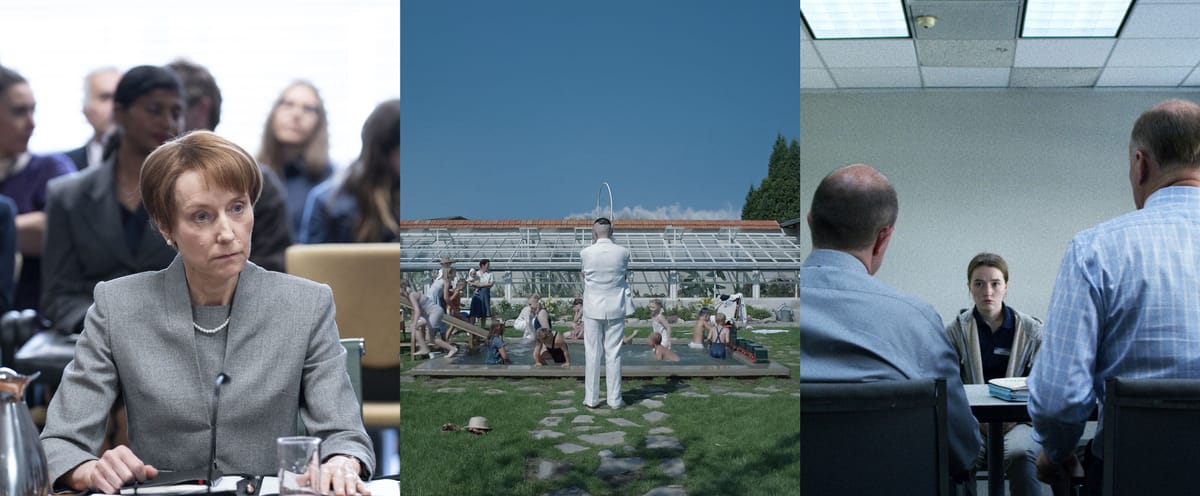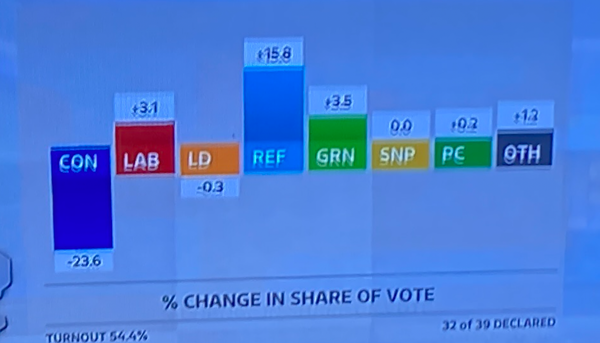Systems of Interest

I haven't seen The Zone of Interest yet but I very much intend to and have been following the reviews. I particularly liked Mark Kermode and Simon Mayo's discussion which included some observations from Mayo who has a prior interest in Auschwitz commandant Rudolf Höss's story. It looks to be an amazing piece of work.
A month ago, like most people in the UK, I watched Mr Bates vs The Post Office after it sent shockwaves through the British establishment in a manner I haven't seen for a long time. The show is, of course, excellent and if you haven't seen it I highly recommend you do.
The fascinating thing about the Post Office scandal, for me anyway, is the vast majority of people who were persecuting the innocent postal workers thought they were doing their jobs properly. They had been given a remit, whether it was to investigate suspected theft or to preserve the good name of the Post Office, and it seems it takes more than a computer bug affecting a proportionally small number of people to derail it.
Humans don't like messy decision trees. They want to tie everything up in a neat bow and go home. And tying a neat bow is rewarded, so there's an extra incentive to ignore the wrinkles. Post Office boss Paula Vennells was not given a CBE by accident – she was rewarded for doing her job properly.
My biggest fear after watching the show was that the media would look for a scapegoat, finding individuals who could be blamed and then stopping. Because this was not the fault of individuals. This was a systemic issue.
Before Christmas I rewatched Unbelievable, the Toni Collette / Merritt Wever starring miniseries about how police can utterly fail rape victims. One of the countless great things about this show is that they allow the detective whose decisions cause such irreparable harm to confront his mistakes. In a lesser drama he would be cast as a the villain, but here he's someone who thought they were doing the right thing, following the proscribed rules and doing his job properly. Upon discovering that his by -the-book actions had allowed a rapist to not only escape but to rape again and again he looks utterly drained and, notably, powerless to make it right.
It's just two or three short scenes and the show is most definitely not about him, but I appreciated how it told us not to just blame the individuals. This is a systemic problem that runs throughout the justice system. The achievement of the detectives played by Collette and Wever to solve the case took immense strength and determination but this is not something to celebrate. It is an indictment of a system that is not working and does not have the ability to fix itself.
Similarly, Mr Bates and his fellow travellers are heroes, but they shouldn't have to be. The corporate rules by which The Post Office operates meant it took pigheaded tenacity and a sense of injustice, spread over decades of relative indifference from the establishment, to raise a blip of awareness about this miscarriage of justice, and without the emotional push of a big TV drama it would probably still be a niche story in Private Eye.
As someone who likes a good system, I'm not against bureaucracy. My dream is to live in a society where shit just works and nothing annoys me more than when the promise doesn't match the reality. I'm more than happy to accept that things will go wrong, mistakes will be made and so on, but I live in the hope that lessons will be learned and improvements will come.
The biggest mistake anyone ever makes is assuming the system works all the time. The best you can do is assume it works most of the time (otherwise you need a new system) and that there will be exceptions which you need to allow resources to deal with.
The Post Office is a long-standing British institution, about which people get dewey eyed and emotional, that has been infected by a capitalist ideology which does not allow for self-reflection. Anything that affects shareholder value, be it suspected theft or bad publicity, must be squashed without mercy.
The US police service is a flawed system propped up by self-mythologising which prevents any attempts to reconsider its value and purpose to society. (The British police aren't great but it seems much worse over there.)
There are countless other examples. I sure you can name a few.
Systems that don't have a feedback loop built in are, at best, going to fail in their aims and, at worst, going to inadvertently cause harm to the people they are supposed to help.
I'm framing this piece with a film I haven't seen yet about Rudolph Höss, the Nazi in charge of Auschwitz where an estimated 3 million people died. I do not want to compare individual police offices and Post Office management to Höss – that would be crass. But I do think their roles exist on a spectrum. It's notable the holocaust did not just suddenly happen – it evolved over a period of years in service to an ideology which could not be questioned. Höss may have taken the job because he was a fascist, but he was rewarded for doing his job efficiently and effectively.
I find the details of his imprisonment and trial interesting for their weird ambiguity. He is clearly a bad man who did a terrible thing and deserves his punishment, but (according to the quotes on his Wikipedia page anyway) he comes across as someone who has been dehumanised by the process he managed and detached from its implications.
I want to be clear I am not casting Höss as a victim. But the spectre of fascism is upon us once again and it will not be enough to merely fight the populist figureheads and their shock-troops. We need to also look to our institutions and the systems that run through them.
I do not know how to end this because I don't have an answer for how we do this. Hopefully someone out there does.



